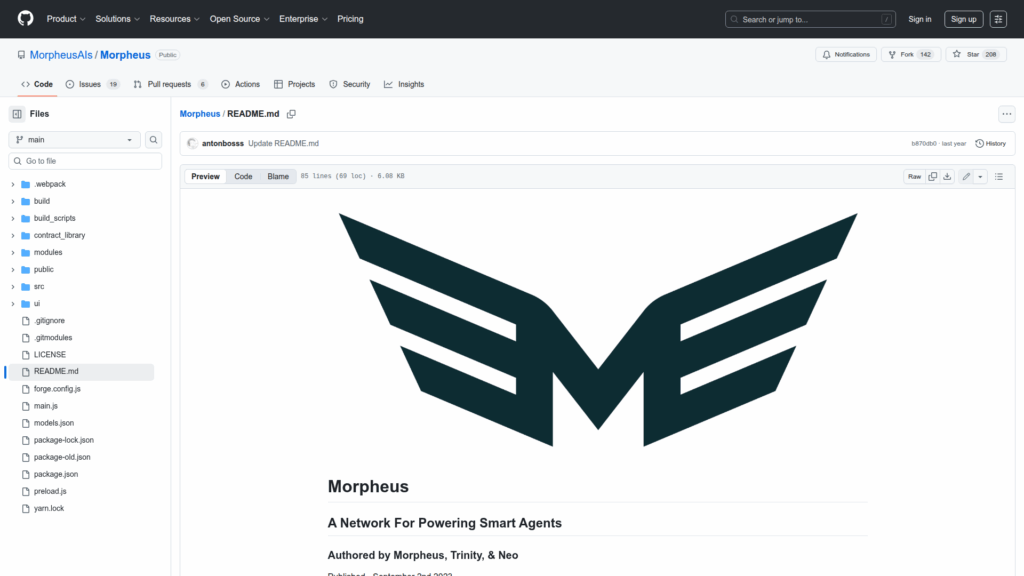Morpheus
Basic Information
Morpheus is a project and network intended to power smart agents that connect large language models and AI agents to Web3 components such as wallets, dApps, and smart contracts. The repo describes an ecosystem that combines open source LLMs (the default is Llama2) with client software and node components to allow natural‑language interaction with blockchain accounts and on‑chain actions. It presents a fairly launched token model to incentivize four participant groups — users, coders, capital providers and providers of computation/storage/bandwidth — and provides release artifacts for local installs across Mac, Linux and Windows. The README documents this goal, provides experimental release notes for version 0.0.6 that includes MetaMask integration for ETH actions, and links to supporting code and technical documentation for contributors and operators. It is positioned as an infrastructure and reference implementation for decentralised smart agent operations.








